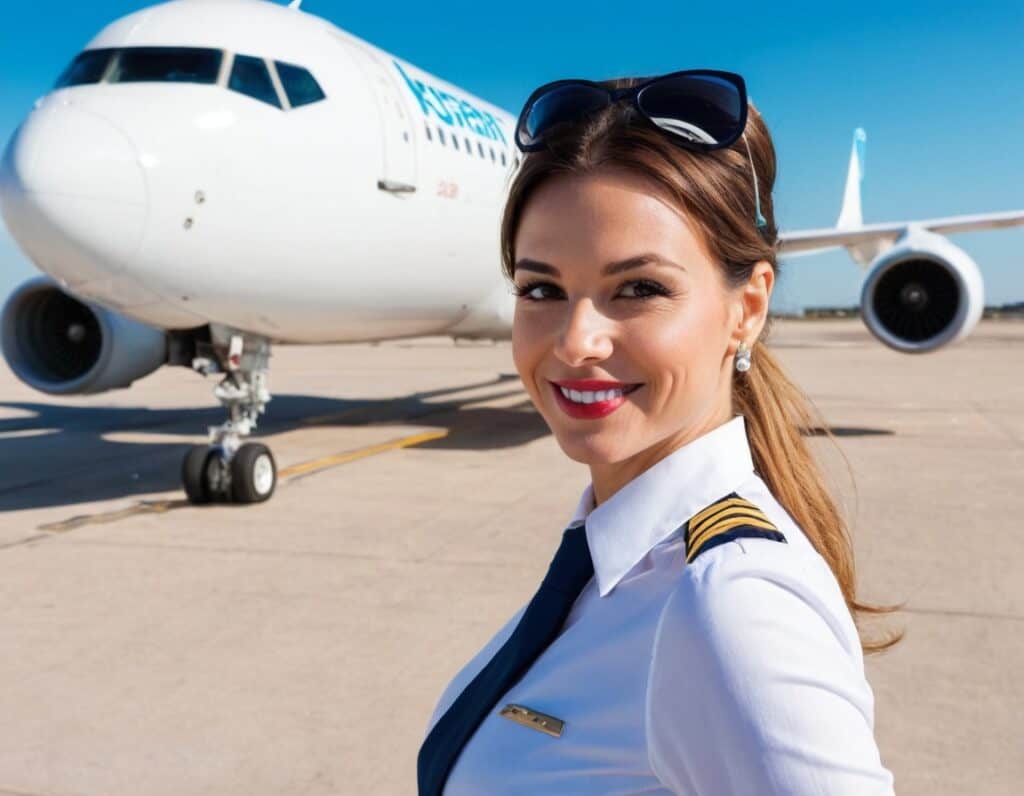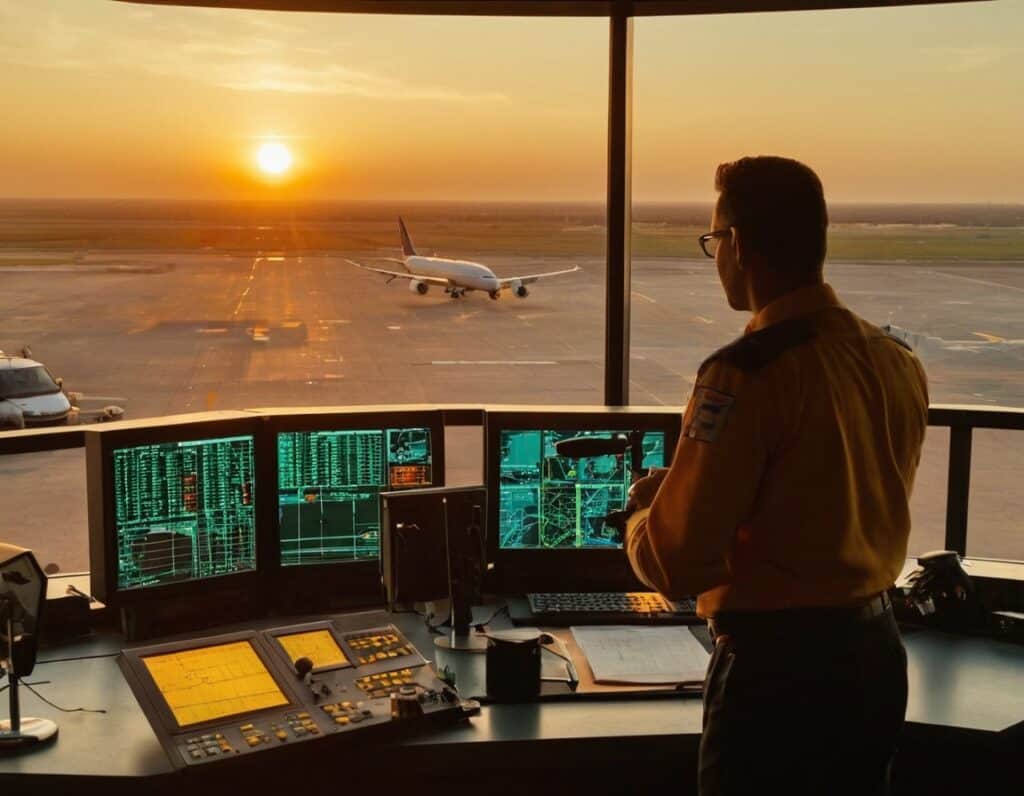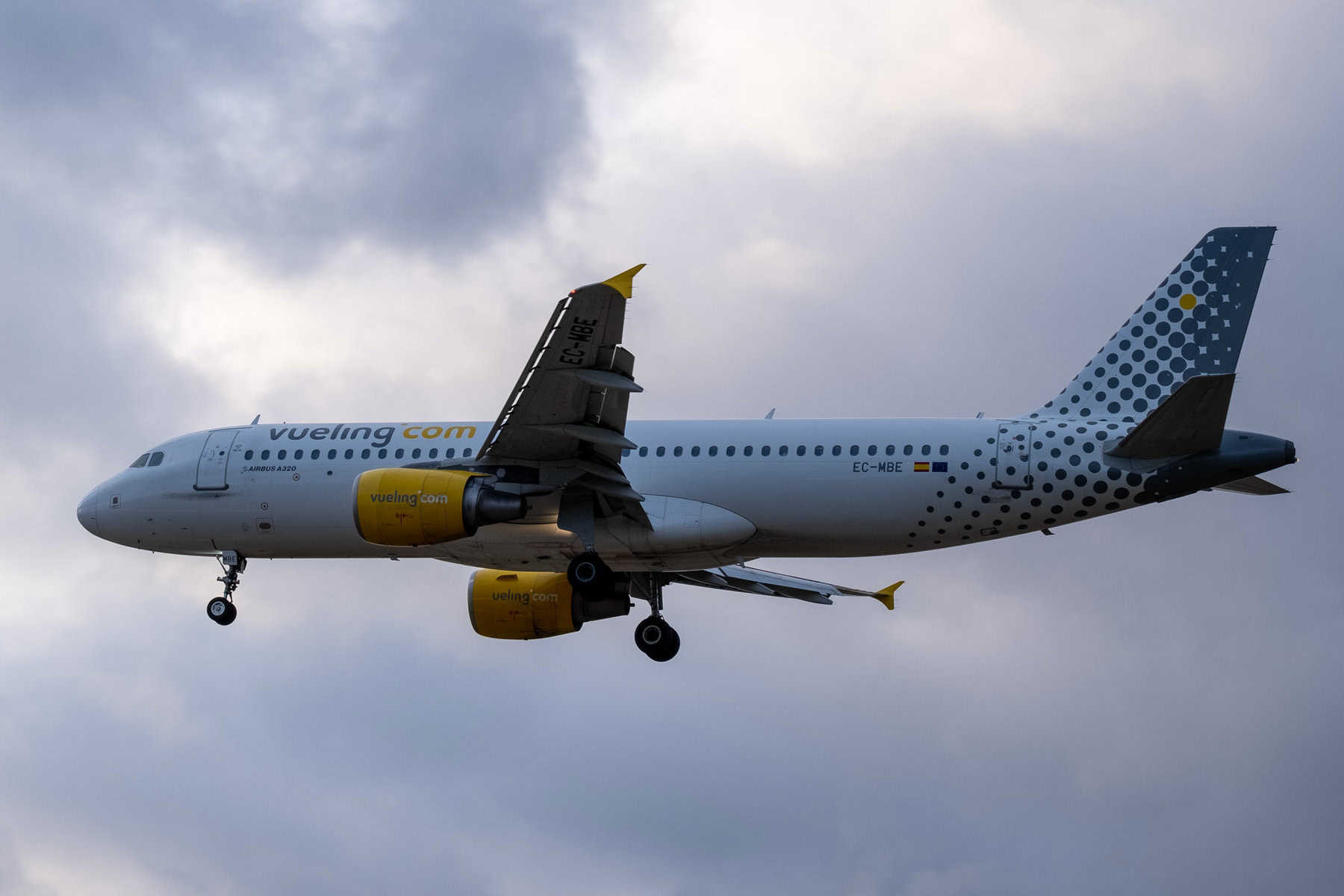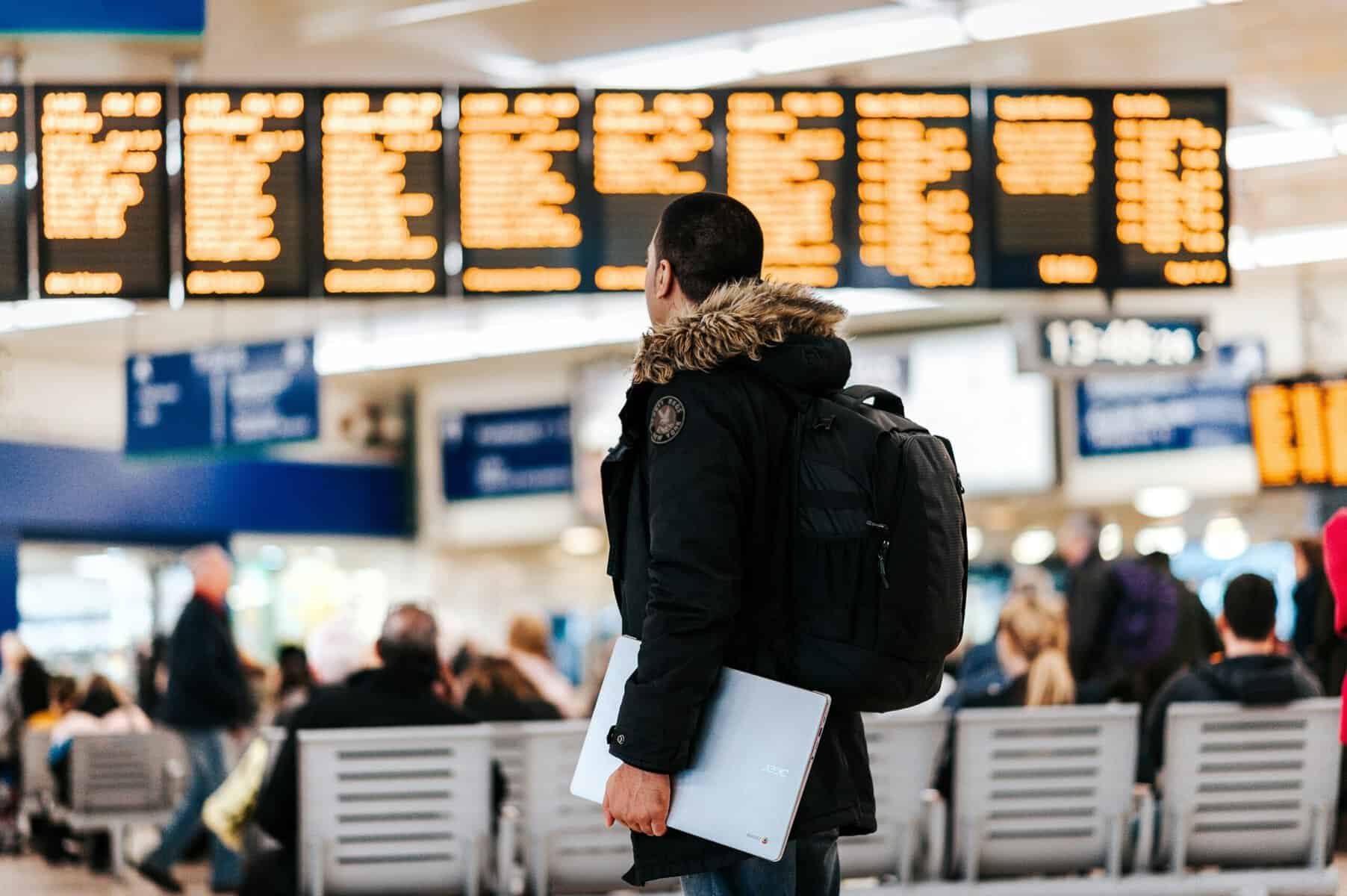Kick-Starting an Aviation Career in Spain, Not Only For Pilots
Moving to another country on a study visa is something that has been around for a while. However, when it comes to intricate professions and industries like aviation, doubts might be painful. Will learning a profession actually help you find work and achieve your personal goals?
Today, we will look at the numerous alternatives for studying in the aviation industry in Spain, as well as the legal grounds to move to Spain and start working in aviation. And, looking ahead, we want to assure you that this strategy is entirely feasible if you have the bravery, determination, and financial resources.
Why Spain? Two words about the aviation industry
Although Spain is not the first country you would think of in regards to the most advanced aviation place in the European Union, it’s highly developed, and the prospects that the industry provides in this country should not be overlooked.

12 airlines are based here
Yes, as many as 12 scheduled airlines operate on an area of about 505,000 km2 and abroad, with the largest being Iberia, Air Europa, and Vueling. Three of these airlines are subsidiaries of Iberia Airlines, yet this number is not often seen in another European Union country.
Part of the reason for the large number of passenger airlines in Spain is the presence of island territories where their own regional airlines operate.
In addition, in Spain, there are two airports that are among the 10 largest by passenger traffic in Europe, according to EUROCONTROL – these are Madrid-Barajas Adolfo Suarez International Airport (MAD) and Barcelona-El Prat International Airport Josep Tarradellas (BCN).
The best accredited aviation schools in the country have partnership agreements with these airlines and programs to help their graduates find employment.
Airbus has presence in Spain, among others
Airbus factories in Spain are in Getafe, near Madrid, and in Puerto Real, near Cadiz, near Seville. According to sources, the concern produces fuselage and tail elements in Spain and also carries out innovative developments.
Of course, there is fierce competition among aeronautical engineers for the opportunity to work with Europe’s biggest civil aviation aircraft manufacturer, but if this is your dream, no one can stop you.
Other companies that have offices in Spain include Thales, Safran, CAE and many others. There are also Spanish companies with an international reach, such as Aertec.
There are international study programs here
The presence of international educational programs in Spain means accessibility: studies are conducted in English rather than Spanish, thus overseas students are not uncommon, and such education is accredited far beyond the country’s borders. Some professions, though, require fluency in Spanish, so it’s good to ensure that the school provides language training.
What aviation specialties can you pursue in Spain?

Pilot training in Spain
There are more than 30 accredited aviation schools in Spain that train pilots for commercial passenger and cargo air transport. Most of them specialize exclusively in EASA licenses within the framework of special education. And a minority offer an ATPL license as part of their undergraduate degree.
The reason for this approach is the need for intensive training and the availability of modern fleets and flight simulators at commercial schools. If you already have a college degree, or if earning a degree will have no impact on your future career, studying to become a pilot at a flight school in Spain is a surefire path to employment.
Many flight schools offer the ATPL in two ways – integrated or modular. The modular course is designed for those who, for one reason or another, cannot go in for intensive training and want to complete the program in stages (also paying for it in stages). The integrated course lasts approximately two to three years, although there are schools in Spain that can train commercial airline pilots in just 16 months.
ATPL training typically includes:
- Commercial Pilot License (CPL).
- Instrumental rating (IR + PBN).
- Single-engine piston aircraft (SEP) rating.
- Multi-piston (MEP) aircraft rating.
- International qualification of radiotelephonist.
- The theory of commercial air transport (ATPL).
- Multi-Crew Cooperation Certificate (MCC).
- Upset prevention and recovery (UPRT).
- Night rating (NVFR).
- Linguistic competence in English (ICAO 4/5/6).
The total number of flight hours (practice hours) varies from school to school, but most schools aim for 300 hours as this is the minimum required to begin working as a cadet for a major commercial airline.
In addition, aviation schools offer time-building programs, that is, additional flight hours for subsequent employment. The presence of a large number of commercial aviation schools allows young pilots to complete their training to become a flight instructor and significantly increase their chances of finding a job. And the favorable climate is conducive to training flights all year round.
The starting rate for a co-pilot on most Spanish airlines is €2,200 per month after taxes. The salary of an experienced PIC is much higher. The average annual salary for pilots at Iberia is about €57,000.
Working for a Spanish airline will require knowledge of the Spanish language, but for international companies, candidates with fluent English will be suitable.
Obtaining an EASA lisense for current pilots in Spain
If you already have a valid pilot license from any ICAO country and want to reaffirm it in the EASA area, a short-term requalification and exam will most likely be required. Some flying schools in Spain help pilots convert a valid flight license by taking responsibility for collecting documents and support, as well as providing missing courses and educational programs. Typically this service is called “EASA License Conversion”, or “Conversión de licencias a EASA”.
Flight attendant training in Spain
There are 157 flight attendant training schools based in Spain. These include large educational institutions with branches in cities, for example CEAE, and small regional schools.
To become a flight attendant in Spain, you must meet the following criteria:
- Age – minimum 17 years (recommended maximum age – 35 years).
- Height is at least 1.57 m for women and 1.68 m for men.
- Education – at least secondary education is compulsory (equivalent to 9 grades), but a college degree is a big bonus.
- Have a CIMA class CC medical certificate.
- Be able to swim 100 m in 2 minutes 30 seconds (but if you can’t do it, you´ll be taught to).
- Know English at a sufficient level to pass the exam at the end of your studies.
The training takes a minimum of 2 and an average of 4 months, depending on the intensity, and includes theoretical training and practice. A TCP course costs between 1,500 and 2,750 euros, depending on the school, but you can also find institutions on the market that offer training for as little as 855 euros. It is important to know the school’s rating for airlines and the marketability of its graduates.
The average salary of a flight attendant in Spain is between €1,500 and €3,000 per month after taxes.
Read our detailed article about studies and job search for flight attendants in Spain.
Training for ground handlers and airport staff in Spain
Many of the schools that train flight attendants also offer training programs for ground handlers (PROCAH) and airport employees (TECA).
For admission to both specialties, a minimum level of knowledge of English B1 and secondary specialized or incomplete higher education is required.
Aircraft ground handling specialists are trained for 4-6 months and additionally undergo practical training for 3 months. Moreover, many schools offer online theory training.
A qualified airport technician (TECA) assists passengers at the check-in desk and during boarding, as well as airlines and aircraft maintenance technicians, and serves as a flight dispatcher. The training lasts anywhere from 12 rigorous weeks to six months, depending on the curriculum, and includes an internship.
The cost of training in such specialties varies from €1000 to €2000.
An airport technical professional and a ground handling specialist in Spain are paid approximately €1100-2000 per month after taxes.
Training of aviation engineers and aircraft maintenance specialists in Spain
An aviation engineer is a prestigious job, especially today, when prominent aircraft manufacturers are attempting to develop environmentally friendly aircraft and require high-level expertise.
Aeronautical engineers in Spain are trained through higher education programs at universities. Examples of universities that offer bachelor’s and master’s degrees in aeronautical engineering are the following: Universitat Politècnica de Catalunya, Universidad Carlos III de Madrid, Universidad Europea de Madrid, Universidad Politécnica de Madrid, Universidad de Sevilla, Universidad de León and others.
Moreover, universities often offer a combined program for training aviation and aerospace engineers, which significantly expands employment opportunities after graduation.
Upon admission, you must present a proof of completion of secondary, specialized secondary, or higher education, and students aged 30 or older from other countries are given priority for admission because their serious intents and choice of profession are not in dispute.
The admission requirements for international students are often publicized on the official website of each university. To study and work as an aeronautical engineer in Spain, you must first learn Spanish. However, universities may require a basic level of familiarity and teach the language as part of the curriculum.
The cost of studying at a university in Spain to major in aviation engineering is about €1000-1500 euros per year, but prices may vary depending on the college.
Aeronautical management degrees in Spain
Aviation management encompasses a variety of operational tasks for operators that transport air passengers and air cargo. Airport management implies working with critical factors such as airport expansion and capacity. Airline managers often work with route management or evaluate data on passengers, sales, and revenue.
An evident advantage of the aviation management career is that, based on the student’s interests, they can go further into a specific area that they are most keen on during their studies.
Aviation management in Spain is taught either at universities or business schools. University education is largely structured around a four-year bachelor’s degree. Some of the universities in Spain that train managers in the aviation industry are: Universitat Autónoma de Barcelona and Universidad Autónoma de Madrid.
In addition, a master’s program in aviation management can be completed remotely in English in one year. The ITAérea Aviation Business School in Madrid provides both offline and distance learning programs that cover a wide range of aviation management topics, including airport and airline management, aviation law, aeronautical engineering, and aviation sustainability and innovation.
The online-taught Master’s in aviation management with an emphasis on sustainability at ITAérea Business School is accredited by the United Nations Institute UNITAR, which implies that students can get their European Master’s degree from anywhere on the globe.
To enroll in the English-language master’s program at ITAérea, you must first earn a bachelor’s degree in any specialty or specialized secondary aviation education. A master’s degree typically costs around €5,000 or more.
Readers of the Aerofuturist’s blog can benefit from a 5% discount on tuition at ITAérea Aeronautical Business School using this promotional code: aerofuturist. Contact us if you want to know more about the English-language distance master’s program in aviation management, and we will be happy to help you take your first steps in one of the most interesting professions in aviation.

Air traffic controller training in Spain
An air traffic controller’s job is tied to airspace safety, hence, this is a profession with the strictest selection standards. While Spain has over 25 private flight schools, controllers are trained at only seven.
Depending on the type of certification, training will cost €46,000-70,000 and take from 1 to 2 years. But the important point is that you can enroll in an air traffic controller school only after passing the admissions committee of the Spanish Aviation Safety and Security Agency.
The good news is that in Spain, you can study to become an air traffic controller and work as one even if you are not a citizen of the country but a resident or passport holder of any other country in the European Union. However, you need to be fluent in both Spanish and English.
Although training to become an air traffic controller is as expensive as an ATPL course, annual salaries for air traffic controllers are comparable to those of pilots, and some positions pay €120,000 per year or more with the required experience.
Obtaining a student visa to study in the aviation industry in Spain
The first step to studying an aviation specialty in Spain is choosing a school or university and clarifying all the necessary details:
- What is required for admission?
- In what format do the studies take place? Is it possible to combine them with work?
- How are exams administered and assessed?
- Is there support for students to find employment?
- What percentage of graduates successfully find a job after graduation?
- Is there financial support, grants, or installment plans available?
- Is hostel accommodation provided if studying on campus?
- Is it possible to take a sabbatical?
The next step is to obtain a study permit in Spain. If you have residence or citizenship in any EU country, such permission is much easier to organize by filing an application with the police for foreigners – Extranjeria. If you need a student visa to study in the EU, check if the school you choose helps with invitations.
Enrollment in a course is sufficient grounds to apply for a student visa in Spain in your country of citizenship. Moreover, a student visa in Spain gives the right to obtain a residence permit for close family members (spouse, children) and the opportunity to obtain a self-employment work permit. In this case, you can work no more than 30 hours a week.
A student visa is usually issued for a year and then extended. Upon successful completion of your studies, you have the opportunity to apply for a self-employed residence; for this, you need to prove that you are intending to work in Spain and are able to provide for yourself and your family.



